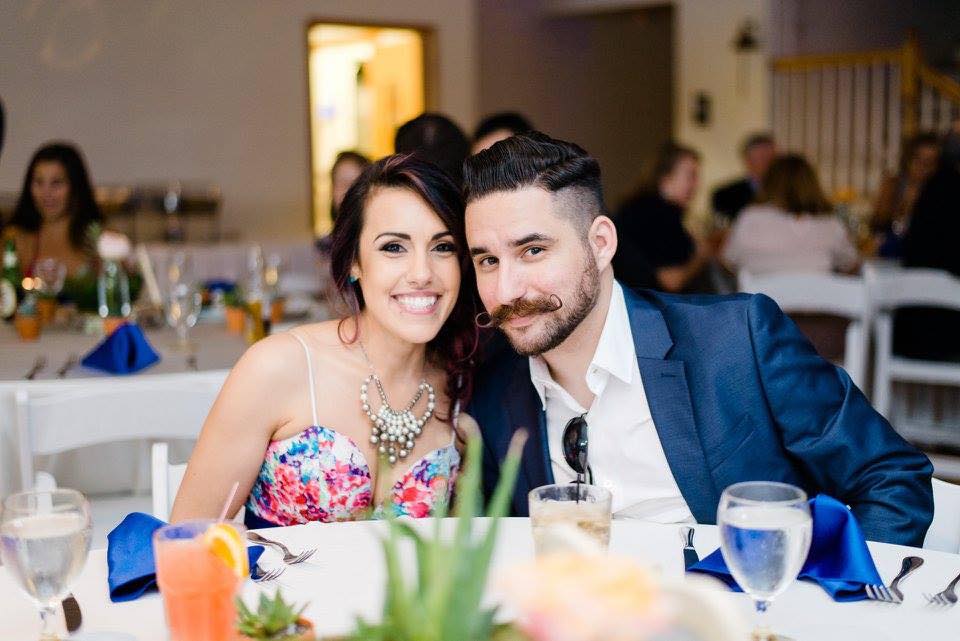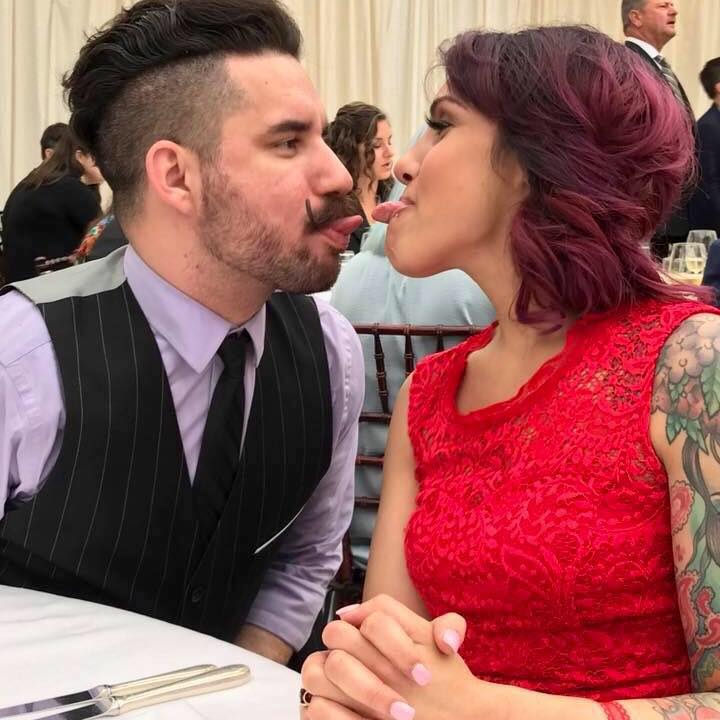Here's What It's Like Dating Someone with a Mental Illness

By:
There are millions of people in the U.S. who are are living with a mental illness, and many of them are navigating the already complicated world of millennial dating.
 Stocksy/Bodnarchuk - bigstockphoto.com
Stocksy/Bodnarchuk - bigstockphoto.com
About 1 in 5 adults experience some form of mental illness in a year, and 1 in 25 experience a "serious" mental illness that limits "major life activities," according to the National Alliance on Mental Illness.
Managing symptoms from anxiety, bipolar disorder, depression or other types of mental illness can make certain aspects of life more complicated, including relationships.
ATTN: talked to young people who are currently navigating a romantic relationship where one partner has a chronic mental illness. Despite the prevalence of mental illness in the U.S., people were reluctant to speak about such a personal topic. Two of the partners we spoke to are living with the mental illness and one of them is supporting a partner. The people we talked to shared stories that varied greatly, depending on the type and severity of the mental illness associated with the relationship, but they all shared the common thread of commitment and empathy.
Talking about mental illness for the first time can be complicated.
Some partners have conversations about mental illness at the beginning of their relationship, while others wait until later.
Danielle Finnegan, 30, met her husband at a local bar in Massachusetts, where she was modeling for an special event. A few days later he asked her out for coffee. "We've spoken or seen each other every single day since then," she said. "And six years later whenever I ask him what he would like for his birthday, he tells me that he already received his birthday wish. Me."
 Danielle Finnegan
Danielle Finnegan
She told her husband she was diagnosed with Attention Deficit Hyperactivity Disorder and related depression, as well as anxiety, within the first few days of dating. Finnegan said that she was incorrectly diagnosed as bi-polar as a teen, but correctly diagnosed with ADHD her early 20s.
"Since my ADHD diagnosis, I've been very open with that specific aspect of my mental health," she said. Her husband wasn't fazed by it, but he also initially thought in the early stages of dating that ADHD was a "bullshit diagnosis that doctors give to kids who don't behave."
"I didn't try to sway him because I knew he would eventually figure out that ADHD is a very real thing," she said. "It wasn't too long into our relationship where he saw how different I was on the weekends when I didn't take my medication."
Other partners learn the reality of a mental illness later in the relationship, sometimes through dramatic circumstances. Alex Koby, 32, said that when he started dating his wife in Los Angeles, she mentioned her bipolar 1 diagnosis but it "went in one ear and out the other."
 Alex Koby
Alex Koby
Initially, his wife wasn't taking medication or experiencing serious symptoms of the disorder.
"I didn't really know what it meant," he said. "I think bipolar gets confused with someone who is moody, which is completely not it at all." Bipolar disorder is a brain disorder characterized by extreme and abnormal mood swings that often come with changes in sleep, energy, and thinking ability, according to the National Institute of Mental Health. It usually starts in someone's late teens or early 20s, but older people can also develop the disorder.
About four or five years into their relationship, Koby experienced the full range of his wife's bipolar symptoms.
"My wife is a [successful] singer and she was in the entertainment industry. One of the things that happened is that she was in an extremely long manic phase and I didn't realize it. She was like a super hero," he said.
Koby said that after a year and a half of this "super hero" phase she started spending money "recklessly" and she would get into fights and lose control.
"I kind of thought she was just being a diva," he said. After a Grammy party she got into a car accident, went into a depressive phase, and then took a large amount of pills at their house.
"The car accident was the moment when I was like, 'this is more serious than I thought,'" he said. They went to a courthouse to get married so that he would have the ability to hospitalize her when necessary.
"I don't think a lot of people actually do the work and research and look up what [bipolar disorder] means," he said. "They might just got to a blog, which is not a medical journal, or see it in the media. As a partner, you've got to be able to support them."
 Alex Koby
Alex Koby
Sometimes a mental illness can create obstacles.
Victoria, 29, lives in New York and plans to marry her fiance in October after dating for four years. She said she's been diagnosed with anxiety and she's borderline depressive. Victoria, who asked ATTN: to only publish her first name, said that her anxiety can create communication problems in her relationship.
"My emotional brain and my rational brain are two completely different animals and sometimes I struggle with articulating what I'm going through," she said. "It's affected our communication in a lot of ways and we've had to come up with creative ways to overcome it. It's a constant struggle and it's something we work on everyday."
Koby said that the pressure and responsibility he feels to support his wife during bipolar episodes has affected his mental health.
"I naturally have a good outlook on life, but during this I've experienced depression. I've never had depression before." he said. "When we have no money in the bank account and I've been the only person working, that weighs heavily on me." He constantly worries that a misstep could result in tragedy. Some studies suggest that at least 25 to 50 percent of people with bipolar disorder attempt suicide at least once.
"What if I do something wrong and she actually does kill herself? I don't want that on me," he said. "I know that's not the right way to think, but when you're in it, your mind goes there."
Supportive relationships are important.
Healthy relationships are important for someone managing a mental health issue because an illness can lead to isolation, which can lead to worsening symptoms, according to the Mental Health Foundation in the United Kingdom. Victoria said that her fiancé helped her realize she needed to pursue additional professional help in managing her anxiety.
"If it wasn't for him, I probably would have continued to attempt to manage it on my own and that was no longer an option," she said. "He has always been really supportive as financial situations have changed and he always said, 'we will find a way to keep you in therapy.'"
Finnegan said that her husband praises her for the support she gives him, but she worries about the pressure her mental illness could put on him.
"He says I do more for him than he does for me, but I constantly feel like it's the opposite," she said. "The logical side of me knows that it's because in my mind I make such a big deal out of simple tasks, so when he performs one of these tasks it feels as if he just saved me from a burning building." She said that her relationship is strong and they both support each other.
"My husband and I are best friends," she said. "I know everyone says that about their significant others, but he and I have that 'I love you because you're as weird as me' type of friendship, and those are the kind of friendships that are always a major source of support when it comes to any type of mental health issue, because you can be vulnerable and honest with them."
 Danielle Finnegan
Danielle Finnegan
Therapy as a couple can be an important tool.
Experts say that couple's therapy can be a resource for maintaining any healthy relationship, but it can be even more important in a relationship where someone has a mental illness.
"I definitely recommend it. I definitely do," Koby said. "The hard thing with someone who has a mental health issue is sometimes you may want to convey a message to them like you would send it to anyone else, but they may not receive that message." A therapist or counselor can act as a mediator between partners, especially when one partner feels attacked, he added.
"The therapist will absorb what you said and relay it back to your spouse in a way that they can understand," he said. "Communication has to work both ways or it's not successful."
Finnegan said that she and her husband have not been to couple's therapy but it's something they've talked about.
"We've already made a promise to each other that if one of us wanted to go to couple's therapy, and the other didn't think we needed it, we would still go," she said.
Victoria said that people with a mental illness can have healthy relationships, despite popular misconceptions.
"They think that you're just crazy. That you're just simply crazy," she said. "My emotional brain operates on a different level and the more you talk about it and the more you're able to express those ideas."
A popular misconception about dating someone with a mental illness is that they "have to be a hermit" and want to avoid social contact, Finnegan said. However, that's not the case for her.
"I can tell you right now that I am the most social person I know," she said. "I love speaking with strangers and engaging in conversations with new people. Anxiety is not logical, and for some reason my anxiety isn't from people, it's from performing simple 'adult' tasks."
Koby said that being close to someone with a mental illness comes with responsibility.
"If you meet someone and you're in a relationship with them, even if it's just a friendship, you should do everything you can to learn about it," he said. "Maybe go to a medical professional so you can be in that person's life in a way that's good for you and good for them."
He said that everyone has to be honest about whether they can be a good partner, and ask the tough questions.
"You have to ask, 'can I handle this and be a good partner and can that person be good for me?'" he asked. "If the answer is no, then don't get into a relationship."
